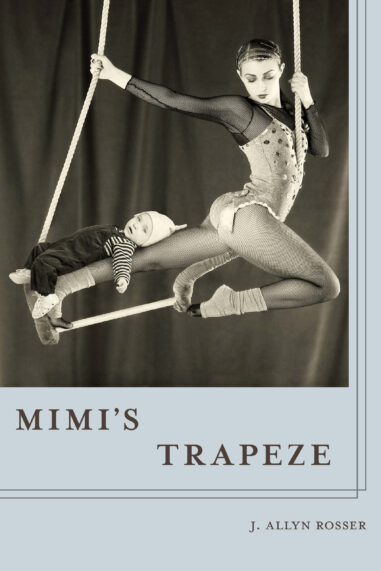
Paperback $20.00
Also available in Kindle
Request Exam or Desk Copy. Request Review Copy
Mimi’s Trapeze
If John Updike was the Fred Astaire of poetry—nimble, dexterous, witty, graceful—J. Allyn Rosser is the Ginger Rogers—witty, nimble, graceful, seemingly doing it 'with the greatest of ease,' as though soaring on a flying trapeze. As they said of Ginger, she could do everything Astaire did, and on high heels and backwards. There's an element of Erma Bombeck's sardonic humor in Rosser's poems, but add to that the graceful, seamless use of rhyme, meter, poetic form, and she has you waltzing from page to page, speaking Tagalog in Manila or 'wiseguy' in New York, pirouetting through museums, cemeteries, malls, with odes to loss, failure, futility and break-up that evince just enough metaphysical speculation to make John Donne and Andrew Marvell drool; odes to a comforting, comfortable old shirt, pelicans and Canadian geese, seemingly almost any old things that captures her attention. . . . Rosser is entertaining as hell.

